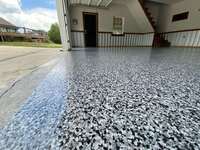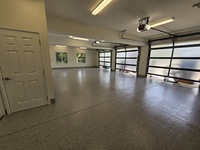For many people in the UK, the name RoyaleLife came truly to the fore last year when the housing company was lauded for making a whole development available free of charge to NHS workers during the height of the Covid-19 pandemic.
The generous gesture was atypical of a company that has made its name through dedication to service to its customers ever since its foundation at the end of the Second World War.
That it was an innovative way for RoyaleLife to make a real difference during the crisis was also par for the course for a business that has been progressively on the front foot, always seeking ways to ensure its products are tailored to the ever-evolving housing market.
It is that insight and foresight that has enabled the company and its CEO Robert Bull to identify a significant sector of the housing market that had fallen out of favour and to design homes to fulfil the needs and aspirations of a whole generation.
The results have been spectacular and based on the recognition that there was a huge gap in the market for a group of frustrated, potential buyers who were falling between the accepted sectors of the industry. In her 2017 article for the website Archinect, Hannah Wood described this group as the ‘Young Old.’ We might describe them in housing customer terms as ‘Baby Boomer Downsizers;’ ready or preparing for active retirement but decades shy of requiring sheltered or traditional later life care.
It was this recognition - that there is a demographic where thousands of people who may or may not be retired who wished to downsize and simply could not find suitable, high-quality properties - where Bull and RoyaleLife saw an opportunity. Where other developers had ceased building bungalows in sufficient numbers a decade ago, Bull and his team recognised a huge opportunity and stepped into the breach.
“In the past 10 years as the UK’s major developers have turned away from building bungalows, RoyaleLife saw a gap in the market for high-quality single-storey homes for those over 45. The company has risen to prominence over the last five years and is now the UK’s largest provider of bungalow living for this group,” explained Bull.
“With a heritage dating back to 1945, RoyaleLife is a business with longevity and stability at its heart whilst growing rapidly and evolving into a corporation that is redefining bungalow living.
“We’ve struck a nerve with the property buying public.”
How RoyaleLife fills a niche
With roots going back to 1945, just as far-reaching changes that would sweep Great Britain after World War II, RoyaleLife has grown over the decades to become a leader in the bungalow market. It has built and overseen the management of over 64 housing developments throughout England and Wales and has many more at the planning stage.
Bungalow homes are defined by their compactness and usually single storey. They are easy to maintain and perfect for singles or couples who do not require extensive room for children. This has made them extremely popular with consumers over the age of 45 who are seeking affordable, secure housing that is integrated into communities planned around beautiful natural settings.
RoyaleLife has grown rapidly this century by recognising the demographic shift that has made bungalows an under-developed part of the British housing stock.
The niche in the market that RoyaleLife understood – and then acted to fill – was driven by the rise of a generation of home buyers who wanted to downsize and wanted comfortable homes that weren’t a challenge to maintain. The company offers fully furnished two-bedroom bungalows that are part of gated communities. Prices range from moderate to luxury, providing a wide range of financial opportunities for people in mid-life whose housing needs are in transition.
And RoyaleLife’s innovative sales package – covering everything from a guaranteed market price for a seller’s existing property, moving arrangements and costs – enables buyers who may still have busy lives to rest easy knowing everything is being done to smooth the process.
“One of the trends that excites me is downsizing into a bungalow, freeing up equity and using the funds to, perhaps, retire or pursue a better lifestyle without worrying too much about money,” says Robert.
“For those people wanting to downsize, RoyaleLife provides the perfect turnkey solution. Offering certainty in an uncertain world, not only do we enable people to release valuable cash when moving home, but we make their move a much easier experience.”
This merging of developing housing stock for which there is unmet demand, bundled with associated services that make homeownership and moving less demanding, is the innovation that RoyaleLife has brought to the marketplace.
A leader harnessing a team’s full potential
Much of the success of RoyaleLife can be attributed to CEO Robert’s commitment and that of his team to open management encouraging innovation.
And while he accepts his role comes with the responsibility of providing and driving the company’s official vision, success is dependent on the whole team.
“Whether it’s suggesting a new idea, sharing an observation or comment, even bringing up valid concerns during work sessions when the team focuses on developing pro-con lists for possible future projects and initiatives, it is vital everyone in the organisation has their voice heard,” explains Robert.
“This style of leadership has helped RoyaleLife grow into a strong presence and the largest provider of bungalow living for those aged over 45. The concept is uncomplicated, and this is partly why it appeals to so many people.”
Understanding the market has required gathering insights, listening to what people actually want, and then visualising and planning to provide them with what they’re looking for. It is also key to understanding the underlying economic and demographic ripples that are constantly moving through the market.
“In the general sense, I make money by identifying where a consumer need isn’t being met by the market. This occurs often but can be difficult to see before the opportunity has passed. It’s all about looking at what’s currently available, how people are living their lives, and how their needs aren’t quite being taken care of,” explains Bull.
“In the case of RoyaleLife, I realised that the UK market’s move away from bungalow-style living wasn’t a sign of the industry’s death; it was the sign of opportunity for anyone willing to fill the gap left by companies that had abandoned the concept.
“In a more literal, specific sense, I make money by selling bungalow homes to people over the age of 45 who want to transform their life for the better.”
The key to the process has been building a talented team and then empowering them to bring their best ideas forward. Once on the table, concepts and opportunities are examined and strategies for implementing them become a collective effort.
“New ideas are of crucial importance at RoyaleLife as the company looks to innovate at every opportunity as we continue to redefine bungalow living in the UK. With a team of 400, I like to encourage a fairly flat management structure to ensure ideas from everyone in the company find a voice.
“As market leader, it is important we stay out in front. Once we’ve got hold of a particular idea, we’ll discuss the pros and cons and fully explore it and, if it has legs, the first step in our process is to cost it out. Managing finances is a top priority.”
For RoyaleLife, this has meant building a company that can not only provide the kind of housing people are looking for later in life, but also act as an amplifier for their personal finances. For many RoyaleLife customers, cashing out in a strong housing market and reinvesting into a smaller, less upkeep-demanding home sets them up for their now-on-the-horizon retirement.
“More and more people are realising that this not only allows them to live the life they want to live today but enables them to live the ultimate life years and decades down the road. As more people begin thinking about their retirement and how to put themselves in the best possible position, the bungalow lifestyle can have massive benefits and upside.”
Housing markets shaped by generational forces
The need for nuanced approaches to the housing requirements of a tightly defined demographic group has become increasingly apparent as the baby boom generation has hit middle age. It is this cultural and socioeconomic trend that is driving widespread economic and architectural challenges common throughout the developed world.
“Old age is now widely understood to have subdivided into two separate phases of life—the ‘Young-Old’ can now expect to enjoy 20–30 years of good health prior to becoming ‘Old-Old,’ when they require special care and support,” explained Hannah Wood in a 2017 feature article on the website Archinect.
Historian Peter Laslett, in his 1996 book A Fresh Map of Life, suggests this phenomenon first emerged as a consequence of the older generation becoming liberated by improvements in healthcare and lifestyle and possessing significant comparative wealth compared to other demographic groups. In the decades following 1950, there was a limited precedent for the ‘Young-Old’ in terms of societal expectations and conventions of how and where to live.
By the second generation of the 21st century, those expectations and conventions have changed drastically.
“A common understanding of seniors would be people with physical or mental difficulties who required care, but my sense was that housing and urbanism for the ‘Young-Old’ was not really being discussed,” noted Deane Simpson – a Danish architect and urbanist, and author of Young-Old (an examination of changing perceptions of senior housing). “I became interested in how emphasis had shifted from care towards entertainment and leisure, and how these communities were self-segregating on an urban scale”.
In the UK, RoyaleLife is reacting to these changes in expectations and possibilities created by this mid-life transitional housing sector as baby boomers begin to consider life up to and after retirement. In the UK, these challenges have also become more focused in recent times due to such events as the COVID pandemic and Brexit.
A recent article in the Exeter Daily explained the allure of RoyaleLife for this demographic: “Workers in their late fifties have expressed concerns about their ability to find a new position in this tough economy. More and more companies in the UK are downsizing, and the ones that are hiring are very selective about who they choose to fill their roles. Those with health conditions or other limitations (who were only likely to retire soon anyway) are unlikely to be top on their list.
“The Home Part Exchange scheme (offered by RoyaleLife) works to streamline the moving process and give workers the additional funds they need to survive. Those who have already been preparing for retirement may just need the extra funds netted from their home sale to allow them to live a life of financial security without having to worry about their legacy.”
Unlike senior housing, which has been on the radar of planners and architects for a generation, transitional housing for empty nesters who are still years from retirement but ready to downsize has not been a priority of developers. The bungalow market is a perfect fit for this niche, especially when there’s profit to be had in the rollover from a larger home that can then be ploughed into retirement savings or the payment of other debt. Enabling transactions – and the transition – to be as stress-free as possible for people still working full-time also makes for an attractive product that is both a commodity and service.
CEO Robert explains that: “What makes a move into a RoyaleLife bungalow so appealing is its innovative Home Part Exchange scheme. Not only will the company enable you to release valuable cash when you move home, but it will make your move completely hassle free.
“With the company’s Home Part Exchange scheme, RoyaleLife offers you 100% of the current market value of your home. So, if your current home is valued at £450,000, and you purchase a RoyaleLife bungalow for £300,000 that will leave you with £150,000 cash. There are no hidden costs: RoyaleLife takes care of the estate agents’ and solicitors’ fees as well as any stamp duty and with all the homes fully furnished with all home comforts and the very best appliances, there will be no large-scale removal fees.
“One of peoples’ major concerns as they get older is freeing up cash and downsizing to enable them to enjoy a more stress-free retirement. The obvious route might be equity release, and while this allows them to stay in their existing home, it can nevertheless be extremely expensive in the long run and seriously affect their children’s inheritance.
“Not only will we enable you to release valuable cash when you downsize, but we will make your move completely hassle free.”
What it boils down to is that RoyaleLife has brought innovation to the UK’s housing market, underscoring the company’s corporate philosophy, which is, as George Orwell put it: “To see what is in front of one's nose needs a constant struggle.”
As Bull adds: “By exposing your mind to a newer, less jaded approach, you can often discover new insights or ideas you wouldn’t have discovered otherwise. It can be a very powerful thing, and it’s an idea that we’ve strived to incorporate into everything we do at RoyaleLife.
“New ideas are of crucial importance at RoyaleLife as the company looks to innovate at every opportunity as we continue to redefine bungalow living in the UK.”
And nowhere better emphasises the strength of the RoyaleLife approach to both customers and employees than the company’s support for the NHS during the Covid-19 emergency.
During 2020 and as the pandemic took hold several projects were quickly made available to serve as housing for NHS workers.
“Key workers are essential for us to combat COVID-19 and their strength and commitment to the cause is highly inspirational. We wanted to do our bit to show our appreciation to this incredible workforce during these unprecedented times,” said Bull.
“As a thank you to the tireless work our incredible NHS workers do, Royale Ranksborough Hall in Rutland was made available free of charge to NHS workers who were required to stay away from home during the COVID-19 pandemic.”
The difficulties that have been front and centre during the age of COVID have been a challenge. But for Bull, dealing with challenges is part and parcel of developing a successful long-term strategy for success.
“Doubt is a part of any business and any career. If anyone who has achieved some level of success tells you that they never experience doubt, chances are that they’re lying.
“The key is to develop enough of an instinct and expertise, something which only comes through focused, diligent learning and experience, so that you can recognise those doubts as simple human nature and not as a warning sign of impending catastrophe.”
For more information, contact [email protected].







